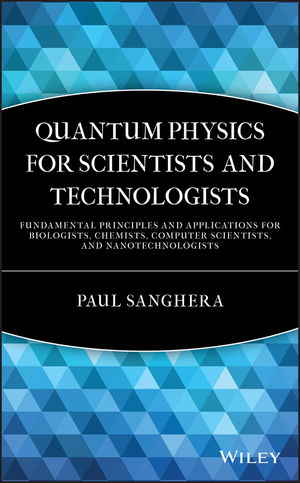Quantum Physics for Scientists and Technologists: Fundamental Principles and Applications for Biologists, Chemists, Computer Scientists, and NanotechnologistsISBN: 978-0-470-29452-9
Hardcover
544 pages
April 2011
 This is a Print-on-Demand title. It will be printed specifically to fill your order. Please allow an additional 10-15 days delivery time. The book is not returnable.
|
||||||
This cohesive book begins with the wavefunction to develop the basic principles of quantum mechanics such as the uncertainty principle and wave-particle duality. Comprehensive coverage of quantum theory is presented, supported by experimental results and explained through applications and examples without the use of abstract and complex mathematical tools or formalisms. From there, the book:
-
Takes the mystery out of the Schrodinger equation, the fundamental equation of quantum physics, by applying it to atoms
-
Shows how quantum mechanics explains the periodic table of elements
-
Introduces the quantum mechanical concept of spin and spin quantum number, along with Pauli's Exclusion Principle regarding the occupation of quantum states
-
Addresses quantum states of molecules in terms of rotation and vibration of diatomic molecules
-
Explores the interface between classical statistical mechanics and quantum statistical mechanics
-
Discusses quantum mechanics as a common thread through different fields of nanoscience and nanotechnology
Each chapter features real-world applications of one or more quantum mechanics principles. "Study Checkpoints" and problems with solutions are presented throughout to make difficult concepts easy to understand. In addition, pictures, tables, and diagrams with full explanations are used to present data and further explain difficult concepts.
This book is designed as a complete course in quantum mechanics for senior undergraduates and first-year graduate students in non-physics majors. It also applies to courses such as modern physics, physical chemistry and nanotechnology. The material is also accessible to scientists, engineers, and technologists working in the fields of computer science, biology, chemistry, engineering, and nanotechnology.



